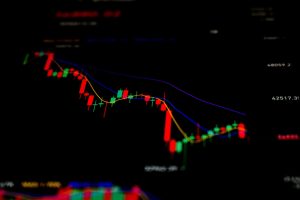The Role of Economic Indicators in Personal Financial Decisions
In today’s fast-paced and interconnected world, personal financial decisions are heavily influenced by various economic factors. These factors, popularly known as economic indicators, provide individuals with essential information about the current and future state of the economy. As such, understanding the role of these indicators is crucial for making informed and strategic personal financial decisions. In this article, we will delve into the significance of economic indicators in personal financial decisions and how they can help individuals achieve their financial goals.
The Importance of Economic Indicators
Economic indicators serve as key metrics for analyzing the overall health of the economy. They provide crucial information on aspects such as employment, inflation, consumer spending, and economic growth. By monitoring these indicators, individuals can gain valuable insights into the direction of the economy and use this information to make better financial decisions.
Employment
One of the most important economic indicators is the employment rate. It measures the percentage of the population that is employed and reflects the overall health of the labor market. A low unemployment rate is indicative of a strong economy, while a high unemployment rate can suggest a weak economy. This information can be useful for individuals when deciding whether to make a major purchase, such as buying a house or a car. In a strong economy with low unemployment, individuals may feel more confident in their job security and be more likely to make significant financial commitments.
Inflation
Inflation is the general rise in prices of goods and services over a period of time. This can have a direct impact on an individual’s purchasing power and, in turn, their financial decisions. For instance, if inflation is high, the cost of living increases, making it more expensive for individuals to afford their basic needs. This could mean cutting back on discretionary spending or taking on more debt to cover necessary expenses. By keeping track of inflation rates, individuals can better anticipate and plan for any potential changes in their financial situation.
Consumer Spending
Consumer spending is a measure of the total amount of money being spent by individuals on goods and services. It is a key economic indicator as it represents a significant portion of economic activity. When consumer spending is high, it can indicate a strong economy with a high level of consumer confidence, leading to increased job opportunities and higher wages. However, in times of economic uncertainty, individuals may be more cautious with their spending, which could have a ripple effect on the overall economy.
How Economic Indicators Influence Personal Financial Decisions
Economic indicators serve as important tools for individuals to make informed and strategic financial decisions. By keeping track of these indicators, individuals can gain valuable insight into the current state of the economy and make adjustments to their financial plans accordingly. For example, if the employment rate is low, individuals may choose to be more frugal with their spending and save more money to prepare for potential job loss. Similarly, if inflation is high, individuals may choose to invest in assets that offer protection against inflation, such as real estate or precious metals.
Economic indicators can also impact specific financial decisions, such as investments. For instance, individuals may choose to invest in industries or companies that are performing well in a strong economy, as opposed to those that are struggling in a weak economy. By understanding the role of economic indicators, individuals can make more informed and strategic investment decisions to grow their wealth.
Final Thoughts
Economic indicators play a crucial role in personal financial decisions. They provide individuals with valuable insights into the current and future state of the economy, helping them make strategic and informed financial decisions. By staying informed and keeping track of these indicators, individuals can better manage their finances and work towards achieving their financial goals.
In conclusion, the role of economic indicators in personal financial decisions cannot be overstated. With the constantly evolving economic landscape, monitoring these indicators is essential for individuals to make smart and proactive financial decisions. By utilizing this knowledge, individuals can navigate the complexities of personal finance and achieve financial stability and success.










